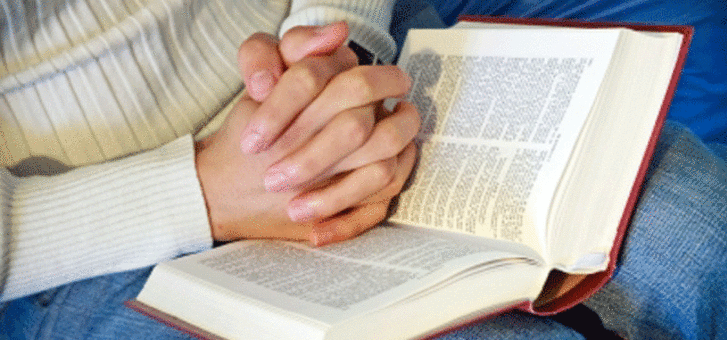"You don’t seem to get it, Jacqui. It’s your future that’s at stake—your life!”
“No, Dad. You’re the one who doesn’t get it. It’s been so long since you were young, you’ve forgotten what it was like. I’m telling you I love Danny. That’s what you don’t seem to understand.”
Harry stared unbelievingly at his daughter, shaking his head, unable to comprehend what he was hearing.
“Jacqui, listen–”
“No! Next Tuesday I’m going to marry him.” Another silence.
“All right. I understand that it’s your decision. No-one is going to make you change your mind. But answer a question.” Jacqueline, happier that her father appeared to be respecting her right to choose, didn’t interrupt.
“Last Thursday you wore a white blouse when Daniel wanted you to wear a different one. How did he react?”
“The blouse he wanted was stained.”
“But my question was–”
“Well, he wasn’t exactly happy.”
“Yes. He clenched his fists and yelled at you. And that night, when we invited him to dinner, what happened?”
“Oh, never mind. It’s over.”
“Because Danny didn’t hesitate to embarrass you in front of the family when you said something he didn’t like. Jacqueline, if that’s how he treats you now, how will it be when–”
“Stop!” she shrieked, clapping her hands over her ears. “Can’t you understand? I love Danny. He’s my whole life. Nothing else matters. What you say doesn’t matter. I love him. Can’t you understand?”
“So what is Danny to you? Is he your god?”
“Sure, that’s it. If that’s how you want to put it, you’re right. Danny is my god.”
My friend Harry told me those last words of the daughter he loved stabbed like a knife into his heart. And why? Because he knew the power of love to hurt. Love leaves us vulnerable as nothing else can. And Harry was terrified to see her place herself in the hands of someone who could hurt her so much.
And that’s exactly why God has given us the first of the Ten Commandments.
It is a warning, offered out of deep concern.
It means: Don’t surrender your loyalty and devotion to “gods” who in reality are not gods. Don’t give a supreme place in your life to something or someone who will disappoint and hurt you.
Failed gods
The ancient people of Israel were surrounded by nations who worshipped “other gods.” There was Dagon, the chief deity of the Philistines, to whom they looked for good harvests and large catches of fish—which meant abundance and prosperity.
The Phoenicians were devoted to the moon goddess Ashtoreth, or Ashtart.
She was in charge of fertility and was especially popular because people worshipped her with drunken feasts and orgies.
The Moabites worshipped Chemosh and the Ammonites worshipped Moloch.
Both of these gods demanded child sacrifices to pacify and persuade them.
Today, of course, popular culture has changed. Most people no longer bow down to gods of wood, stone or metal.
But money, sex and power are still the driving forces in the lives of millions.
The next time you go by a newsagent look at the covers and scan the titles.
Or when watching television, take note of the topics discussed on talkshows or in sitcoms. What does this tell you about the “gods” that people worship most fervently today? What has been the result, to date, of worshipping these “other gods”? Like the false gods from long ago, they are also deities that turn against their worshippers and devour them.
From the frantic worship of sex has come the pandemic of AIDS. Why isn’t anybody talking about the clearest and most obvious solution? The simplest, most obvious solution is to turn our backs on this treacherous deity and once again respect the sacred character of marriage.
Terrorism has become the sword of the weak, the desperate recourse of the powerless. It feeds on fanaticism and ignorance, and finds its recruits in miserable refugee camps in which unhappy young people are bombarded daily with the rhetoric of hatred.
The solution offered to this terror is to turn to the god “power”—build better rockets and bigger bombs. With them, hunt the terrorists, smoke them out and crush them—power is offered to solve the terrorism problem. Such a strategy results in strengthening the resolve of the radicals as each wave of brute force is unleashed against them.
It creates more anger and confirms their conviction that they are victims and their hatred and violence are justified.
Love and worship
Jesus said the greatest commandment was, “Love the Lord your God with all your heart and with all your soul and with all your mind” (Matthew 22:37).
Then He added, “This is the first and greatest commandment” (verse 38).
Worship, like love, is an attitude of the heart. It is a disposition and a decision to make God first, to put Him on life’s throne and give Him His place as sovereign, making Him the ruler of our lives.
Why this commandment first?
Many people who instinctively believe in the existence of God don’t reach the point of making Him number one in their lives. But that is really the only place He can occupy if He is, in fact, God. That is why this commandment comes first. All the others are simply moral rules that have no more power than thousands of other good ideas if we have not given God His place, if we have not made Him Lord of our lives.
The question isn’t, Do I already have a full and complete understanding about God and His will for my life? Neither is it, Am I good enough for Him to accept me? Or, Am I already obeying the other commandments? You cannot back into the first commandment by obeying the other nine.
Instead you have to come to the other nine through this one.
Rather, the question we need to ask is simply this: Am I willing to give God His true and rightful place? Am I willing to make Him number one? That is what the first commandment is all about.
Here is an ancient appeal that still speaks to us across the centuries: “What does the Lord your God ask of you but to fear the Lord your God, to walk in all his ways, to love him, to serve the Lord your God with all your heart and with all your soul” (Deuteronomy 10:12).




